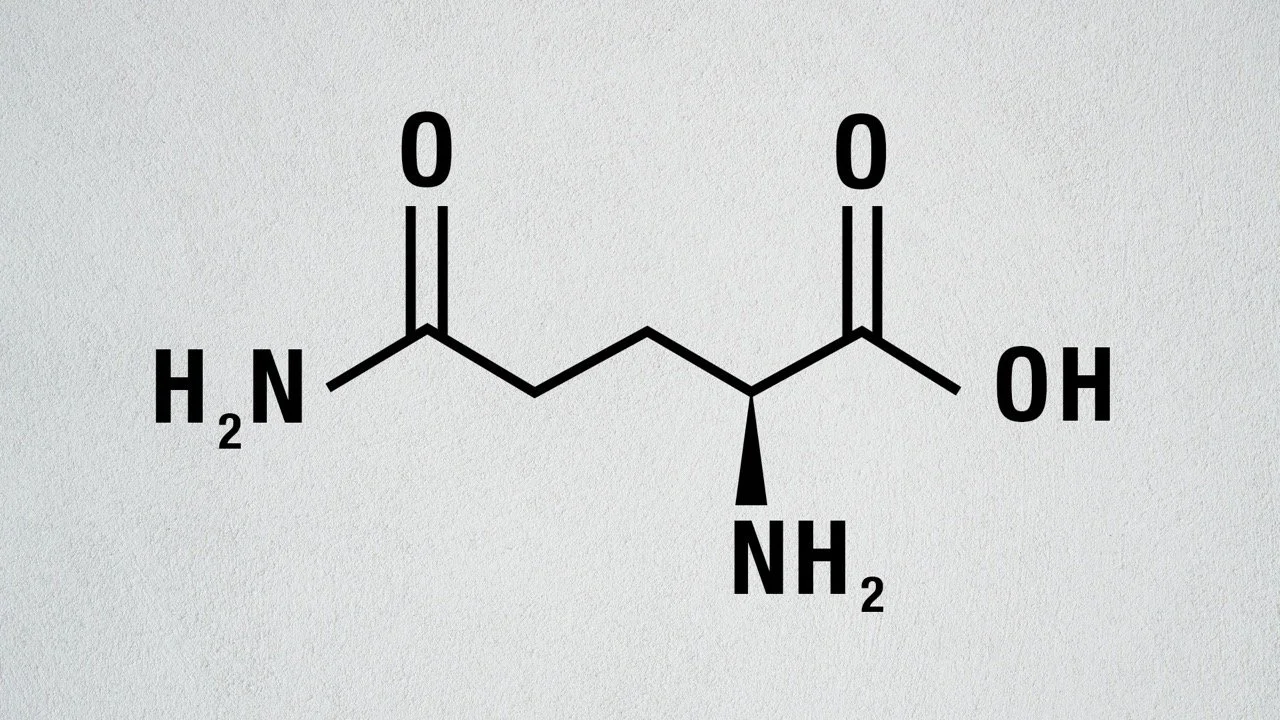Amino Acids and Mental Health
Amino acids are much more than protein builders—they’re essential for mental wellness. These small compounds contribute to brain health by keeping our minds clear, focused, and emotionally balanced. Many people are turning to amino acid therapy as a natural approach to enhance mental wellness, especially as part of a holistic mental health plan that integrates lifestyle and diet.
Whether it’s for sharper focus, mood stability, or anxiety relief, mental wellness supplements rich in amino acids can offer significant support. When we feel foggy, anxious, or stressed, our bodies might be struggling with amino acid deficiencies that affect our mental state. Replenishing essential amino acids for mood can lift our spirits, providing mental clarity and a more balanced outlook.
Amino acids support neurotransmitter health, which is essential for mental resilience, alertness, and stability. Let’s explore how these compounds can bring emotional balance and enhance mental wellness through diet and supplementation.
Photo by Ryan Moreno
The Role of Amino Acids in Neurotransmitter Balance
Amino acids play a vital role in neurotransmitter balance, which keeps our minds healthy and stable. Neurotransmitters are chemical messengers that influence mood, focus, and motivation. Tyrosine and tryptophan, for example, directly impact dopamine and serotonin production—two essential neurotransmitters for happiness and calmness. With well-balanced neurotransmitters, our brains are less prone to extreme mood swings or sudden energy crashes, giving us greater mental stability.
Mood Support: Amino Acids for a Positive Outlook
Mood support amino acids offer a natural boost for emotional well-being. If you’ve ever felt down or irritable, amino acids like tryptophan and phenylalanine can help. Tryptophan, for instance, helps increase serotonin levels, often called the “feel-good” chemical. A balanced serotonin level can reduce anxiety, helping us feel more upbeat and resilient.
Stress-relief amino acids like glycine are also powerful allies when life feels overwhelming. Glycine acts as an inhibitory neurotransmitter, which means it slows down overactive brain signals that contribute to stress and anxiety. Including glycine in your diet or taking it as a supplement can ease tension, helping you relax and improve sleep quality.
Boosting Energy and Motivation Naturally
Amino acids can help us feel energized and ready to take on daily challenges. Energy-boosting amino acids like tyrosine elevate dopamine levels, enhancing focus and motivation. This is especially helpful for managing burnout or fatigue, giving us the stamina to approach the day with renewed vigor.
In addition to increasing energy, certain amino acids support general mood regulation by acting as the building blocks for essential brain chemicals. These include:
Tyrosine: Boosts dopamine, which is linked to motivation.
Tryptophan: Supports serotonin, improving mood.
GABA: Helps calm the mind by reducing stress signals.
Enhancing Cognitive Function and Clarity
Beyond mood, amino acids are also essential for cognitive function. Tyrosine and glutamine, for instance, help with mental clarity and memory retention, making amino acids an excellent choice for students, professionals, or anyone needing a mental boost.
Many brain health supplements incorporate amino acids due to their broad benefits, from improving sleep to boosting memory. Glutamine, in particular, aids energy production in the brain, helping us stay focused and alert throughout the day.
Nootropics and Mental Resilience
For those interested in nootropics (brain-enhancing supplements), amino acids are a common ingredient because of their positive effects on focus, memory, and mood. Tyrosine, known for boosting dopamine, is popular in these supplements due to its ability to enhance mental resilience and motivation.
Mental resilience supplements often include amino acids like tyrosine, tryptophan, and glutamine because they allow our brains to respond more flexibly to stress, making us more adaptable and resilient in the face of life’s challenges. By keeping our neurotransmitters balanced and our minds alert, these amino acids prepare us to tackle future stressors with greater ease.
Amino acids are natural supporters of brain health, mood stability, resilience, and mental clarity. They help stabilize emotions, improve focus, and increase our adaptability, making them a powerful option for those looking to boost mental wellness through a natural approach. In the next section, we’ll dive into specific amino acids and their unique contributions to mental health.
Assess your mood type to recover from depression and other negative moods
with our FREE Amino Acids Questionnaire
Photo by Kylo
Specific Amino Acids for Mental Health
Now that we understand the general benefits of amino acids for mental health, let’s look at specific amino acids and their unique roles in supporting a healthy, balanced mind. Each amino acid has distinct effects on neurotransmitter levels, stress response, and even sleep quality.
Serotonin and Amino Acids: Enhancing Happiness and Calm
Serotonin, often called the “happy hormone,” plays a crucial role in maintaining mood stability and reducing anxiety. Several amino acids are directly involved in serotonin production:
Tryptophan and Serotonin: Tryptophan is a precursor to serotonin, meaning our bodies need it to create this vital neurotransmitter. Many people turn to tryptophan supplements or include tryptophan-rich foods, like turkey and nuts, in their diet to help boost serotonin naturally.
Phenylalanine and Dopamine: While primarily associated with dopamine, phenylalanine also supports mood stability. As a precursor to dopamine, it keeps us feeling motivated and focused.
GABA: The “Calming” Amino Acid
Gamma-aminobutyric acid, or GABA, is an amino acid known for its calming effects on the brain. By slowing down overactive neurons, GABA helps to reduce anxiety and promote relaxation. GABA supplements are popular for people looking to manage stress without prescription medication, and many find that it helps with evening relaxation and sleep as well.
Glycine for Relaxation: Glycine is another amino acid that supports the calming effects of GABA. Often included in relaxation supplements, glycine helps the body wind down, making it easier to fall asleep and feel rejuvenated in the morning.
Supporting Focus and Motivation: Tyrosine and Dopamine Precursors
Amino acids like tyrosine play an essential role in focus and motivation. Tyrosine is a dopamine precursor, meaning it helps the body produce dopamine—a neurotransmitter critical for staying motivated and mentally sharp.
Tyrosine for Focus: Known for its role in enhancing cognitive performance, tyrosine is often used by those needing mental clarity, particularly during stressful situations. It’s common in supplements aimed at productivity and mental endurance.
Histidine and Lysine: Promoting Mood Stability and Reducing Anxiety
Histidine and lysine are two lesser-known amino acids with powerful effects on mental health:
Histidine and Mood: Histidine helps regulate histamine levels in the brain, which can positively affect mood and wakefulness. Studies have shown that histidine may improve cognitive performance and enhance alertness.
Lysine and Mental Health: Lysine is known to reduce stress and anxiety by influencing serotonin receptors, making it a useful amino acid for those who struggle with anxious thoughts. Adding lysine-rich foods like eggs and beans to the diet, or taking lysine supplements, can make a difference in managing everyday stress.
Amino Acids and the Gut-Brain Connection
The gut-brain connection has gained a lot of attention in mental health circles, and amino acids are key players in this relationship. The gut-brain connection refers to the link between gut health and mental well-being, with research showing that a healthy gut can support a healthy mind.
Leaky Gut and Mental Health: A Barrier to Balance
When our gut lining is compromised—a condition known as “leaky gut”—it can allow toxins and undigested food particles to enter the bloodstream, which may lead to inflammation. This inflammation can disrupt neurotransmitter function and increase the risk of mental health issues such as depression and anxiety.
Amino Acids and Brain Fog: People with leaky gut often report feeling “foggy” or mentally unclear. Amino acids like glutamine help repair the gut lining, which can reduce brain fog and improve mental clarity.
The Gut’s Role in Depression and Anxiety
The gut also produces a large portion of the body’s serotonin, linking depression and gut health closely. Amino acids that support gut health can, in turn, improve serotonin production and overall mood:
Anti-Stress Supplements: Many anti-stress supplements include amino acids that support both gut and mental health, such as glycine and glutamine, to maintain calm and reduce stress.
Glutamate Regulation: Some amino acids help regulate glutamate, an excitatory neurotransmitter that can cause anxiety when levels are too high. By maintaining proper levels of glutamate, amino acids contribute to a calm and balanced mind.
Improving Sleep and Reducing Cortisol
Sleep quality and stress levels are directly affected by amino acids that impact the gut-brain connection:
Amino Acids and Sleep: Amino acids like glycine and tryptophan are known to support better sleep. Glycine, for instance, cools down the body’s core temperature, signaling it’s time to rest.
Cortisol and Amino Acids: Cortisol, the “stress hormone,” can wreak havoc on both gut and mental health when chronically elevated. Amino acids such as tyrosine help maintain healthy cortisol levels, reducing the likelihood of stress-induced gut issues.
Specific Applications: ADHD and Serotonin Production
For those dealing with conditions like ADHD, amino acids can be particularly helpful in balancing neurotransmitters and reducing hyperactivity:
Amino Acids for ADHD: Amino acids like tyrosine, which increases dopamine, can help improve focus and reduce hyperactivity in those with ADHD.
Amino Acids for Serotonin: By supporting serotonin production, amino acids aid in creating a stable mood and reducing symptoms of anxiety and depression often associated with gut health issues.
Take our FREE assessment to measure the health of your Gut Microbiome
Conclusion
Amino acids play a profound role in supporting mental wellness, resilience, and overall emotional balance. They are a key part of mental health optimization due to their ability to target specific areas like anxiety relief and mood stability. Here’s a quick recap of the ways amino acids enhance mental health:
Amino Acids for Anxiety: Glycine, GABA, and lysine are known for their anxiety-reducing effects, making them natural options for those looking to stay calm and balanced.
Amino Acids for Depression: Amino acids such as tryptophan and glutamine support serotonin production and improve gut health, reducing symptoms associated with depression.
Brain Health Optimization: Many amino acids help with focus, energy, and resilience, supporting overall brain health for a more balanced mental state.
Amino Acids for Resilience: Tyrosine, tryptophan, and glutamine help us stay adaptable and motivated, building resilience for future stressors.
Mood Stability Amino Acids: Tryptophan and phenylalanine provide stability, helping maintain a positive mood through balanced neurotransmitters.
Whether it’s through supplements or a well-rounded diet, amino acids offer powerful support for mental wellness and resilience. They provide the tools for managing stress, reducing anxiety, and keeping our brains healthy and alert, making them essential for anyone interested in improving their mental health naturally.




